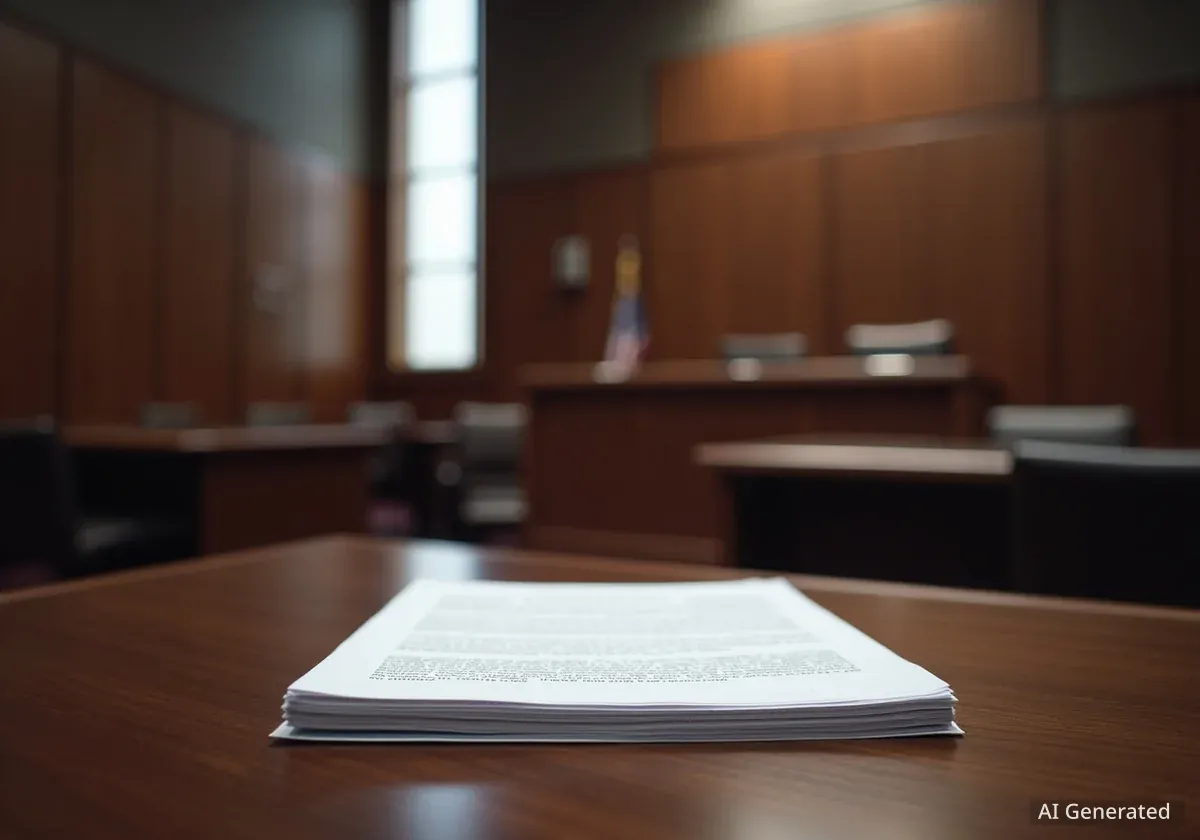A New York State Supreme Court has dismissed a lawsuit filed by the former principal of King Center Charter School (KCCS) and three other administrators who sought to be reinstated to their positions. The court's decision, issued Wednesday, confirmed that the school's Board of Trustees acted within its authority when it chose not to renew their employment contracts.
The case involved former Principal Antoinette Radford, Assistant Principal Joellen Thurman, Dean Brandon Thurman, and Director of Curriculum Jessica Schaefer. The ruling concludes a legal challenge that began after the administrators' contracts were not renewed in June 2025, a move that prompted community support for the longtime staff members.
Key Takeaways
- A lawsuit by four former King Center Charter School administrators to regain their jobs has been dismissed.
- The court ruled the school's Board of Trustees had final authority over employment decisions.
- The petitioners' employment contracts had expired on June 30, 2025, a key factor in the decision.
- The non-renewal of contracts in June sparked a rally from parents and students who supported the staff members.
Details of the Court's Ruling
The State Supreme Court's decision on Wednesday brought an end to the legal action initiated by the former KCCS administrators. The court's findings were clear and centered on the legal framework governing charter schools in New York.
According to the official court documents, the judge determined that the petitioners' employment agreements with the school had a definitive end date. "It is undisputed that the Petitioners’ employment contracts with KCCS expired on June 30, 2025," the ruling stated. This fact was central to the court's reasoning.
The decision also referenced a meeting that took place on June 24, 2025, just six days before the contracts were set to expire. In that meeting, the chair of the Board of Trustees informed Radford, Joellen Thurman, and Brandon Thurman that their contracts would not be renewed for the upcoming school year. This prior notification was a significant element considered by the court.
Understanding the Charter Schools Act
A crucial part of the court's decision hinged on the New York Charter Schools Act. This state law grants significant autonomy to charter schools. Specifically, the act states that "the board of trustees of the charter school shall have final authority for policy and operational decisions of the school." This provision gives the board the legal power to make key decisions, including those related to staffing and contracts, without needing external approval.
Background of the Employment Dispute
The conflict began in late June 2025 when the school's leadership team was informed of the board's decision. The non-renewal affected three key figures: Principal Antoinette Radford, Assistant Principal Joellen Thurman, and Dean Brandon Thurman.
In response to this news, a fourth administrator, Director of Curriculum Jessica Schaefer, resigned from her position. The lawsuit later filed by the group sought reinstatement for all four individuals, including Schaefer, who argued her resignation was a direct result of the board's actions against her colleagues.
Following their departure, the four administrators, through legal representation, sent a letter to the school around July 1. In the letter, they contested the board's decision, arguing it was executed improperly.
The petitioners argued that the decision not to renew their contracts was made "without severance, without due process, and without clear or transparent justification."
This claim formed the basis of their legal challenge. They believed the school had failed to follow proper procedures and had not provided a satisfactory reason for ending their long tenures at the institution.
Community Rallies in Support of Administrators
The decision by the KCCS board was met with immediate pushback from parents, students, and community members. Shortly after the news became public, a rally was organized at the school to show support for the four administrators.
Attendees at the rally voiced their strong support for the staff, whom they affectionately called the "Fantastic Four." This nickname reflected the high regard in which the community held them. Together, the four educators had dedicated more than 50 years of combined service to the King Center Charter School, building deep relationships with families over time.
Over 50 Years of Combined Service
The four administrators involved in the case—Radford, the Thurmans, and Schaefer—had a collective service record at the school spanning more than five decades. This long history contributed to the strong community reaction to their departure.
Parents expressed their dismay and frustration. One parent who attended the rally told reporters that her children were "heartbroken" by the news of the layoffs. The sentiment was that the administrators were an integral part of the school's culture and success, and their sudden exit created uncertainty and sadness among the student body.
Despite this public show of support, the school's Board of Trustees maintained its position, which has now been legally validated by the state court's dismissal of the case.
The Legal Authority of Charter School Boards
This case highlights the operational structure and legal authority vested in charter school boards. Unlike traditional public schools, which are typically governed by a district-wide school board and subject to extensive union contracts and state regulations, charter schools are designed to operate with more flexibility.
The court's reliance on the Charter Schools Act underscores this distinction. The law is structured to empower a charter school's board of trustees as the ultimate decision-making body. This includes hiring, firing, and contract renewals for all staff, including top administrators. As long as these decisions do not violate other laws or the school's own charter, the board's authority is generally final.
In this instance, since the administrators were on fixed-term contracts that had reached their expiration date, the board's choice not to offer new contracts was considered a legitimate exercise of its operational authority. The court found no evidence that the board had violated the terms of the expired contracts or the governing state law, leading to the dismissal of the petitioners' case.





